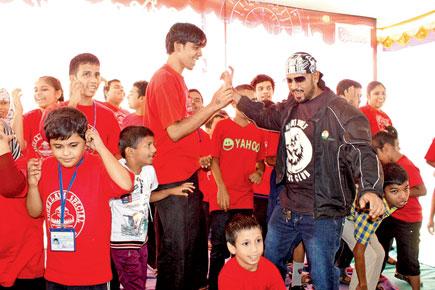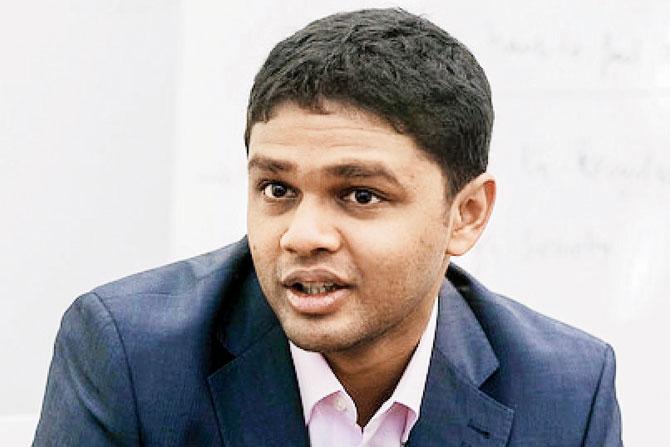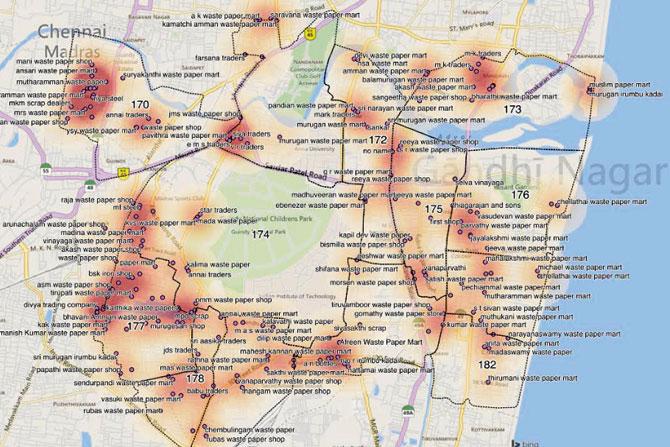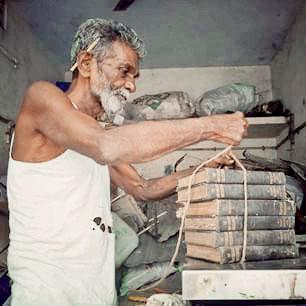The startup Kabadiwalla Connect aims to put people and neighbourhoods in closer contact with their local scrap dealers

The Chennai-based startup Kabadiwalla Connect, which connects neighbourhoods with their local scrap dealers, may be only a few months old, but the foundation for the project was laid several years ago, when founder Siddharth Hande was a student at the city-based, Loyola College. “I had set up an organisation called Reclaim Our Beaches with a few of my friends and it became popular. It was the first youth organisation of its kind, which propagated cleaning up beaches and so on,” explains Hande. “It was filthy,” he continues, while remembering the clean up campaigns. “People used to come to the beaches and dump all kinds of waste there.” But the data analyst learnt the limitations of the exercise when he realised that the waste that they managed to clear off ended up back in the environment.
ADVERTISEMENT

Siddharth Hande
The 27-year-old first thought of Kabadiwalla Connect when the World Economic Forum invited entries for the ClimateSHAPE Awards which offered 1,00,000 CHF in grants to those who pitched the most innovative project. Hande was keen on exploring how information technology could be used to streamline waste disposal and management. “That was the big moment,” he remembers, talking about how he conceived the idea. The team bagged the grant in November last year and was awarded funds to kick-start the project in Chennai and Bengaluru.

Talking to kabadiwalla
Kabadiwalla Connect aims to map kabadiwallas in local neighbourhoods, so that people are aware of their nearest local scrap dealers and can route their recyclable waste through them. “The aim was to stop recyclable waste from going into landfills,” explains Hande. But, data was crucial to the project and there was none, at least initially. So, teams of volunteers, armed with questionnaires of 60 questions, engaged with local scrap dealers in an effort to map them. “We tried to understand who they were, how they operate, the categories of waste they collect such as paper, plastics, glass items and metals like iron, steel, aluminium, copper and brass, cost price and so on,” he elaborates. The team even invented a custom mobile app to collate the data that they collected. On May 31, the startup will release its online information service on local scrap dealers from Zone 13 (Adyar) of Chennai. So far, they have mapped 204 kabadiwallas in this zone. They have also launched a campaign titled Invisible Recyclers, where they invite volunteers to click pictures of their local scrap dealers and upload them on Instagram.

“We have three aims. One is to run campaigns to legitimise the waste ecosystem. Second is to use technology to send more recyclable and upcyclable material to local scrap-dealers and third is to identify how this informal waste ecosystem can connect to the more formal ways cities handle their waste,” explains Hande.
To keep the project sustainable, Hande explains that they have reached out to designers who can create products out of recyclable material. “We will sell these products so that we can generate money and keep the project sustainable,” he explains.
Next month, the project will head to Bengaluru. Hande hopes to reach all major cities by the end of this year, including Mumbai. Citing the example of Brazil, which even has a census of waste pickers, Hande explains that scrap dealers remain absent from the mainstream conversation in the country. “But they play a crucial role in this ecosystem. They contribute so much to the ecosystem, but still remain invisible,” he concludes.
 Subscribe today by clicking the link and stay updated with the latest news!" Click here!
Subscribe today by clicking the link and stay updated with the latest news!" Click here!






